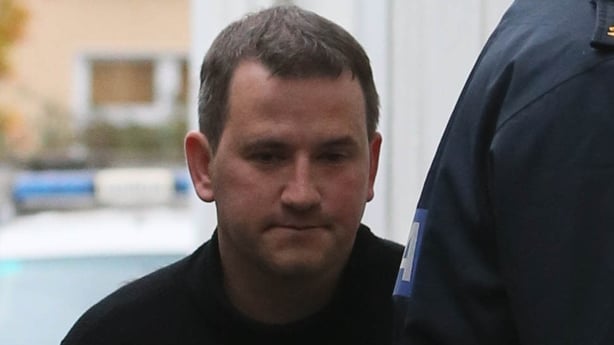The family of Elaine O'Hara have said they hope she can rest in peace after Graham Dwyer lost his last-ditch appeal against his 2015 conviction for her murder.
In a statement, the O'Hara family said it was now almost 12 years since they had lost Elaine.
They said a missing persons case had turned into a murder investigation and a "long, arduous criminal trial, with many challenges to the jury's verdict over the years".
"We are relieved that the Supreme Court has upheld the verdict of the Court of Appeal," the family said, adding that they hope that Elaine "can now, at last, rest in peace".
The family thanked members of An Garda Síochána, in particular the investigating team, the detectives and their family liaison officer, who they said had been by their side throughout. They also thanked friends and family for their support over the years.
The family released the statement after the Supreme Court unanimously dismissed Dwyer's appeal, ruling that evidence of mobile phone data was admissible at his trial.
The Supreme Court ruled last month in a case involving almost identical issues about the admissibility of mobile phone data.
In that case it dismissed objections to its admissibility at a criminal trial. And today's judgment unsurprisingly follows the same lines.
Mobile phone data played a large part in Dwyer’s prosecution for the murder of Ms O’Hara in 2012.
It helped to link him to a phone used to send messages to Ms O’Hara, arranging to meet up and helped to tie him to certain locations.
Dwyer successfully argued in the Court of Justice of the EU and the Supreme Court that the legislation under which his data was retained and accessed breached EU law because it was too general and did not have independent oversight.

His appeal against his conviction finally went ahead in December 2022.
The appeal court ruled against him. But the Supreme Court agreed to hear this further appeal on the grounds that the issues involved raised points of law of exceptional public importance.
In the court's decision, Mr Justice Maurice Collins said mobile phone traffic and location data may be lawfully gathered, retained and accessed "by a variety of actors, in a wide variety of circumstances and for a variety of purposes" and its retention was not excluded by the Constitution or the Charter of Fundamental rights.
He said it was gathered and accessed in this case at a time when the directive giving effect to the Irish legislation was still in place and was properly admitted at trial.
We need your consent to load this rte-player contentWe use rte-player to manage extra content that can set cookies on your device and collect data about your activity. Please review their details and accept them to load the content.Manage Preferences
Judge Collins said it was evident the garda investigation into Ms O’Hara’s disappearance and death was meticulous and exhaustive. He said there was a "substantial amount of evidence" linking Dwyer to Ms O’Hara and substantial evidence that he was obsessed with knives and with the prospect of torturing and stabbing a woman to death during sex.
The judge set out some of the evidence heard during the trial and he said the position was "very clear". Even if the traffic and location data inadmissible, the remaining evidence available to the prosecution was more than sufficient to establish that disputed text messages were linked to Dwyer beyond reasonable doubt. The judge said the evidence was in fact "overwhelming and unanswerable".
He said the evidence established beyond any reasonable doubt that Dwyer met up with Ms O’Hara near Shanganagh Park on the evening of August 22 2012, for the purpose of killing her.
All seven judges agreed Dwyer’s appeal should be dismissed.
Nine years after his conviction, legal sources believe Dwyer has exhausted all reasonable options to challenge his conviction any further. He will continue to serve the life sentence imposed nine years ago, which the judge at his trial said was "richly deserved".






